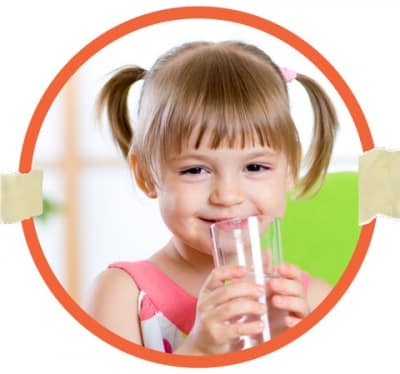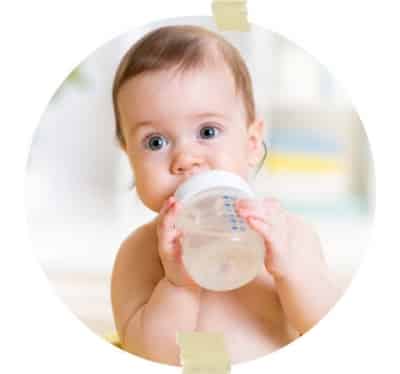Your Home's Water Quality is Impacting Your Family's Health!
What Can You Do About It?
Introduction
Water quality is an important issue in our modern lives. With continual reports of EPA standards violations by city water systems or deteriorated piping resulting in lead within the drinking water in Flint, MI, the quality of America’s water seems to be constantly in jeopardy. This problem is one that can make it right to your own tap water.
A majority of people in the United States depend on municipal or city water supplies everyday.
Many contaminants find their way into your water supply:
- Runoff from farming and industrial activities
- Byproducts of aging water infrastructure
- Minerals and pollutants from the ground
Contaminants may be within your home’s water and can negatively impact you and your family’s health. High levels of minerals can also make it harder for your water to clean your clothing and dishes. It may leave strange, unpleasant odors and tastes behind. Other pollutants have been linked to mental and physical development problems in children, skin, nerve and heart damage and even cancer.
Even people who get water from their own private wells can be subject to contaminants from runoff and from toxic elements that are already present within the ground. You never can really be sure exactly what is coming out of your faucet until you have it properly tested.
But have no fear! If you find that water quality is indeed an issue in your home, there are plenty of filtration and softening systems that can remove these unwanted and potentially harmful pollutants from your home’s water supply.
This informational paper helps you understand the different potential problems to see if they impact you. We’ll then help you filter through the various solutions to find one that may be right for your needs.
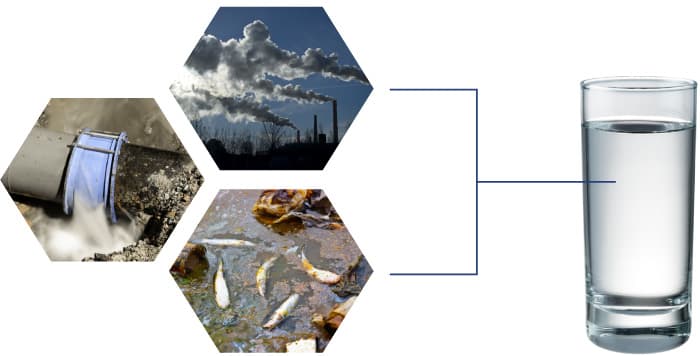
Clean Water Is Vital to Your Health
We depend on water everyday for our survival. That’s why the purity and cleanliness of your family’s water should be a top priority, as it has one of the greatest impacts on your health.
With this in mind, take a moment to consider the importance of water for your health.
Water
- Is the primary method for delivering oxygen & body fluids.
- Helps in removing waste and toxins from your organs.
- Helps with digestive tract capabilities.
- Helps in absorbing vital energy and nutrients.
- Maintains healthy moisture for mucosal membranes in places like your mouth and eyes.
- Is vital for growth, reproduction and survival of cells.
- Maintains and regulates your body’s temperature.
- Provides lubrication for your joint movements.
Plus, approximately 60% of an adult’s body is made up of water.
But the water you’re using and consuming may not be as clean and pure as it first appears.

Your Water May Not Be As Clean As You Think!
Water from municipal and city supplies may not be as clean as you’d expect. In some cases, treatment plants purposefully add certain elements into these supplies that can cause serious health problems for you and your family. In other instances, contaminants are added as a byproduct of human actions.
Below, we explore what those harmful additives are.
Fluoride
Fluoride was introduced into the water supply by the U.S. government to help in cavity prevention and dental health. Modern research reveals that fluoride’s negative outcomes outweigh its positive dental effects. According to FluorideAlert.org, these negative effects can include:
- Damage to tooth enamel
- Pineal gland disruption
- Increased risk of cancer
- Immune system and thyroid function suppression
In high levels, fluoride can collect in bones, altering their makeup and leading to skeletal weakness. Some research suggests higher amounts of fluoride might have negative effects on nerve and brain cells.
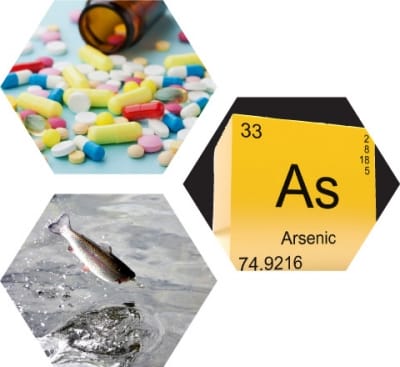
Pharmaceuticals
According to Harvard Medical School, traces of prescription medications such as antidepressants and birth control pills, just to name a few, have been found in drinking water. This is due to un-metabolized remnants of drugs excreted through urine or sweat and from people dumping their leftover medications down the toilet. Studies have found that chemicals behaving like estrogen cause male fish to become more feminine. Higher quantities of female fish and fish possessing both female and male sex characteristics have been found downstream from wastewater treatment facilities, as compared to populations not downstream from a treatment plant. Research has also found that fish located downstream from some wastewater facilities have amounts of antidepressants within their brain tissue.
Long term effects on humans ingesting various pharmaceuticals through drinking water are currently unknown, but the aforementioned effects on fish may be a sign of potential problems ahead.
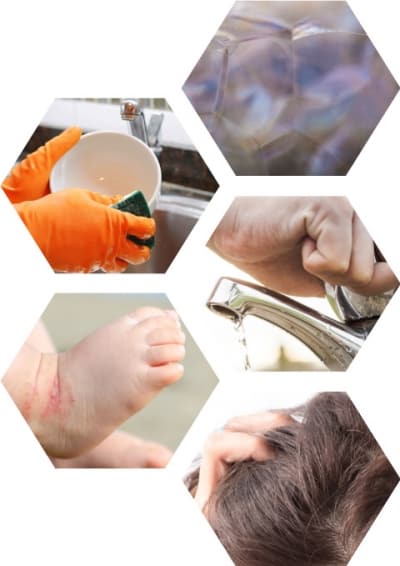
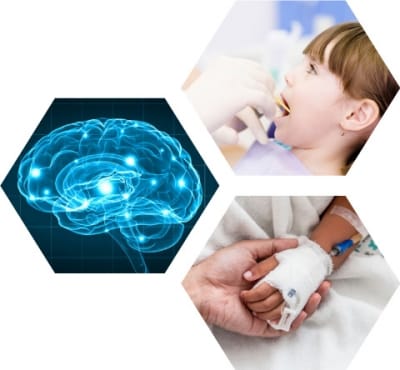
Chlorine
Chlorine is used to eliminate dangerous microorganisms. While it does a good job, high levels of chlorine have been identified as a contributor to cancers, birth defects, advanced skin aging and even asthma. Chlorine is found in household cleaning products and is also used in swimming pools to destroy bacteria. Think about the irritation you’ve experienced in a pool from chlorine. At times, you’ve likely suffered skin and eye irritation. Chlorine is also used by wastewater treatment facilities to kill microorganisms as well. If chlorine can cause these issues to your body by simply swimming in it, why would you want to risk side effects of actually drinking it?
Heavy Metals
Heavy metals are linked to various human health problems and can be introduced to a drinking water supply through degradation of water infrastructure and runoff from industrial activities such as agricultural and mining operations and electronics manufacturing. Such harmful heavy metals include:
- Cadmium
- Iron
- Lead
- Mercury
- Arsenic
An Advanced Purification Engineering Corporation article reports that exposure to heavy metals can result in cancer, nervous system and organ damage, growth problems, and even death in advanced instances of poisoning. Children are more susceptible to problems from heavy metal exposure, which can sometimes result in problems with memory, learning and behavior
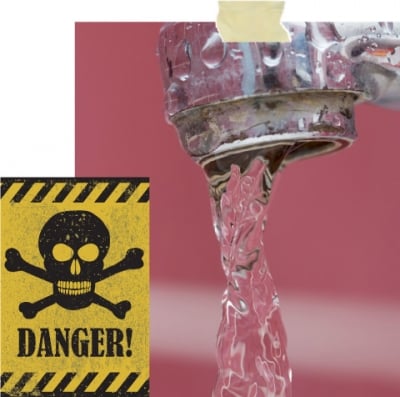
Hard Water
Hard water is a term used to describe water containing high concentrations of mineral build up. The two minerals that generally cause hard water issues are calcium and magnesium. These minerals can be removed with water softener systems. Although hard water is not a health concern, it can cause a few problems of its own including:
- Decreased ability of soap to clean, leaving behind a scummy soap residue
- Unsightly spots and discoloration on your silverware, glasses, dishes, tiles and shower doors
- Wear and tear on your plumbing appliances and piping
- Your clothes may be worn out faster and might not be cleaned thoroughly
- Skin irritation
- Drier, duller hair due to reduced ability of shampoo to lather and wash
Water Quality Problems In Phoenix, AZ

The Phoenix area has unique water quality issues of it’s own, like the displeasing odor and tastes caused by high amounts of summer algae growth within natural water supplies such as lakes, according to a 2017 Azfamily.com article.
Based on a 2015 analysis, the Natural Resources Defense Council has even ranked Arizona 9th in a list of states with the highest amounts of offenses against the Safe Drinking Water Act, calculated by population.
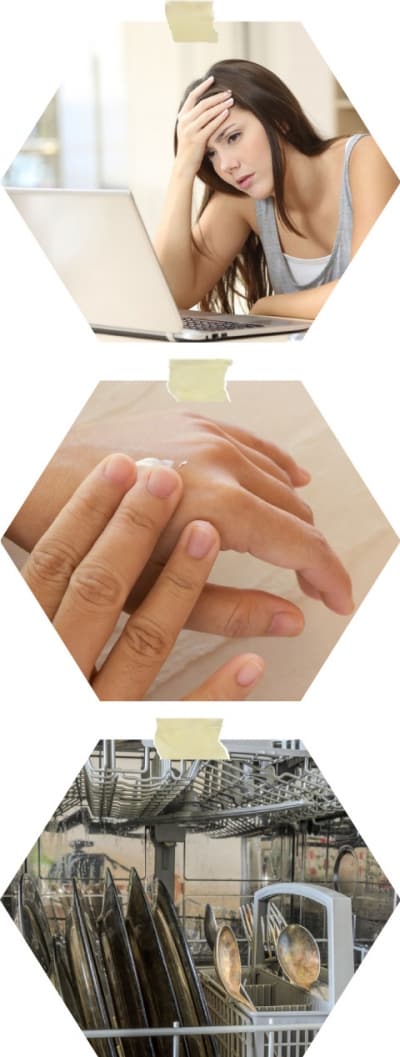
According to the findings, 17,085 people were served water from systems that had Safe Drinking Water Act health violations in Maricopa County.
Considering the importance of water on your family’s health and wellbeing, you don’t want to risk the chances of contaminated water causing harm.
Signs of Poor Water
There are many signs that your water may be impacting you and your home- Feeling sluggish and tired
- Getting sick much too often
- Dry skin & hair
- Water has a strong, unpleasant odor or taste
- Calcium build-up on the shower & bathtub glass doors, tile, grout & fixtures
- Rust & calcium build-up on the water heater exterior, shut-off valve, copper lines and connections
- Water spots on dishes, glasses & silverware
- Clothes not coming clean when washed
Is Bottled Water A Safer Alternative? Perhaps Not.
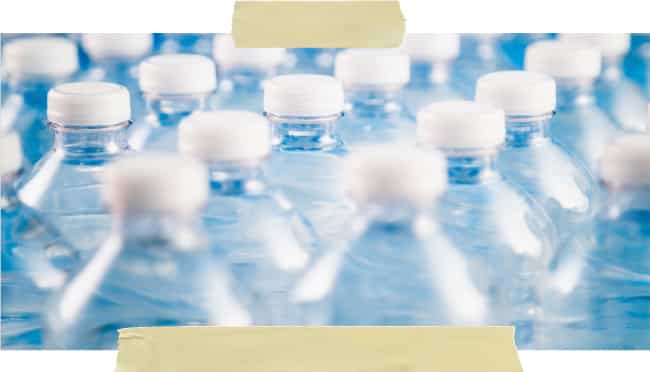
If you’re spending money over and over again on bottled water so you’ll have a supply of clean, healthy water, you may be doing so in vain. There is no solid guarantee that bottled water is safer than water from the tap. According to an ABC News article on the findings of a World Wildlife Fund International report:
In the United States and Europe, there are more regulations for tap water than there are for bottled water companies
Bottled water can sell for up to 1,000 times more than tap water does, and may not even be safer.
Bottled water poses as an environmental threat as well. 1.5 million tons of plastic are used for bottled water every year. Making and disposing of plastic results in toxic pollution of the Earth’s environment.
The plastic bottles themselves may cause health problems. BPA, a chemical that is used in the production of some plastic bottles can leach into the water within if the bottles become too warm. BPAs have been known to increase the risk of brain, prostate, ovarian and breast cancer, as well as the risk of attention deficit disorder, asthma, hyperactivity and aggressive behaviors.
How Can You Ensure Your Water Is Safe & Clean?
This first thing you need to do is get an accurate analysis of your home’s water quality. You can easily perform a water test by picking up a water testing kit at your local hardware or home supply store. You can also get a free professional water test through Hobaica Services.
Depending on your water analysis, you’ll now be able to choose the correct filtration system for your needs. There are multiple, modern water filtration systems that can clean your home’s water. Professional plumbers can quickly and accurately install whole house and single point water filtration systems in your home to powerfully filter out harmful contaminants and troublesome minerals within your water. Here are a few filtration and water softener technologies that can solve your family’s water issues:
Carbon Filtration Systems
Normal osmosis occurs when molecules move from a less concentrated solution towards a more concentrated solution via a semipermeable membrane.
The direction is the complete opposite for reverse osmosis. Molecules are pushed towards a less concentrated solution. Using your water supply’s pressure, the semipermeable membrane (housed within the filter) will only allow water molecules to pass through. Contaminant molecules are trapped within the membrane and the purified water is pushed through to become your drinking water. This process will improve the cleanliness, taste and odor of water through filtering out:
- Sediment
- Arsenic
- Fluoride
- Mercury
- Chromium
- Lead
- Rust
- Unwanted bacteria and microorganisms like cryptosporidium and giardia.
Carbon Filtration Systems
These systems use active carbon medias for the adsorption of pollutants, trapping them within the carbon material as water is pushed through. These are specifically crafted to be very porous. These active carbon medias are generally composed of coal, wood or coconut shells. These work to filter out:
- Chlorine
- VOCs
- Iron
- Manganese
- Sediment
- This solution leaves your water clearer and tasting crisper.
Soft Water Systems
This is a very effective solution if your home has hard water. These systems eliminate water hardness by employing ionic exchange and salt to pull calcium and magnesium out of your water.
A mineral tank houses polystyrene beads which are negatively charged. Magnesium and calcium, both of which are positively charged, will stick to the beads when water is pushed into the tank. A brine solution, heavy in salt, is pushed through the mineral tank. The sodium ions will push the magnesium and calcium ions off of the polystyrene beads and will flush them away, leaving you with soft water.
Most water softener systems work with an automatic regeneration system to refill the tank to prepare it for another round of softening.
Benefits Include:
- Enhanced skin and hair health
- Reduced skin rashes and irritation
- Reduced corrosion and scale build up
- Eliminates water spots
- Enhances ability of your water to clean your clothes, helping them feel softer and last longer in general
Rely On Hobaica For Your Water Filtration Solutions
Call Hobaica today at (602) 633-9555 if you suspect your drinking water is not as safe or as clean as you think it should be. Our experienced and qualified plumbers provide water quality testing, installation and repair services for any water filtration system and will help you to determine which system is right for your unique needs, so your family can benefit from safer, cleaner water.
